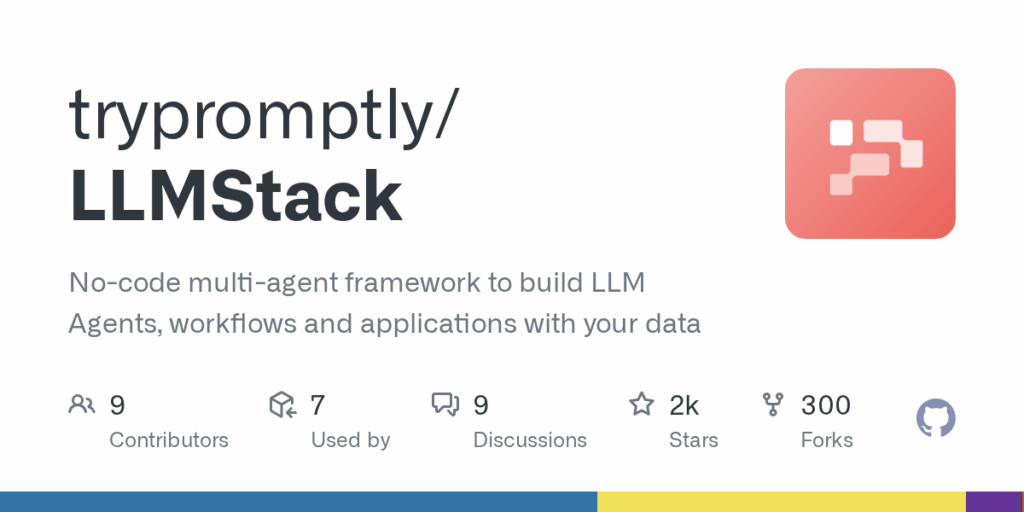LLMStack
Basic Information
LLMStack is a no-code platform and toolkit for building tailor-made generative AI agents, applications and chatbots by chaining multiple language models. It is designed to let users connect models to their own data sources and internal tools without writing code, and to deploy solutions either in the cloud or on-premise. The repo provides the core application, a no-code builder and components to import and preprocess data, create multi-step AI chains, and expose resulting apps via HTTP APIs or chat integrations. It supports triggering chains from collaboration platforms such as Slack and Discord and includes multi-tenant organization and user management. The project also documents local deployment, a pip-installable package, runtime dependencies like a background Docker jobs container, and default local admin credentials for initial setup.








